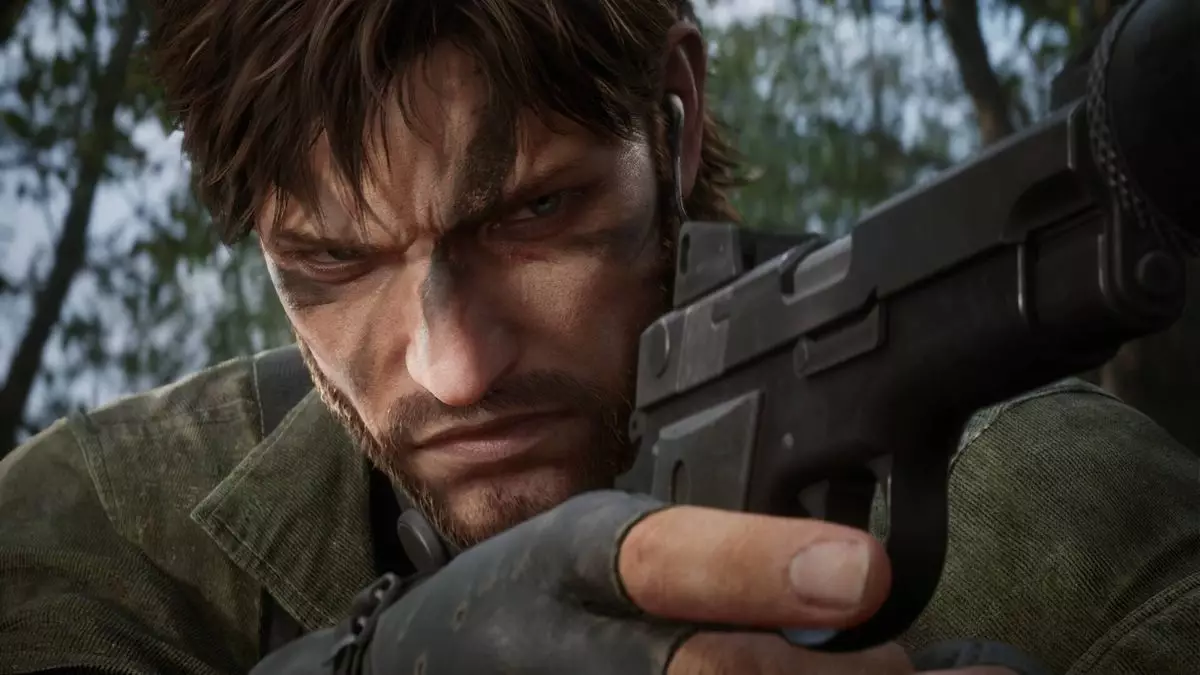The Metal Gear series, a cornerstone of gaming history, faces a curious challenge: its very legacy is at risk of becoming esoteric to newer generations of gamers. In a candid interview featured in Play issue 46, Noriaki Okamura, the series producer, revealed a growing concern—the lack of familiarity among younger audiences with the rich narrative and iconic characters that have shaped the franchise. With the last mainline game launched in 2015 and the original Metal Gear Solid: Snake Eater celebrating its 20th anniversary, it’s no wonder younger players may find themselves disconnected from the series’ origins. This disconnect prompts a reflective exploration of how cultural phenomena can dwindle over time, particularly when faced with an ever-evolving gaming landscape.
The introduction of Metal Gear Solid Delta, a remake of the beloved Snake Eater, aims to bridge this generational gap. Okamura articulated that the motivation for this remake extends beyond mere nostalgia; it is positioned as a rejuvenation of the series for a new audience. While traditionalists may scoff at a fresh foray into such well-trodden territory, this project embodies a deliberate endeavor to breathe life into a narrative that many now regard as classic. By reaching out to inexperienced players, Konami hopes to inscribe the essence of Solid Snake and the intricate plots of the Metal Gear universe into the consciousness of the next generation.
One of the most notable choices made by the team at Konami is the decision to omit numerical designations in favor of the Greek letter delta. This strategic rebranding seems unorthodox, but it signals a fresh start capable of shaking off any preconceptions and possibly uninspired patterns associated with sequels. Delta represents change and evolution—an alignment with the narrative theme of transformation that pervades the Metal Gear series. By beginning with Snake Eater, which serves as a critical component in the series chronology, the developers aim to reinterpret the foundational story while still captivating seasoned fans.
Okamura emphasizes the importance of preserving the rich legacy of Metal Gear, asserting that it is more than just gameplay; it’s an art form with profound themes and complex characters. For long-time followers of the franchise, Solid Snake isn’t merely a character; he symbolizes covert operations, moral ambiguity, and the futility of war. As the series embarks on this new chapter, it endeavors to instill these themes into the minds of a younger audience, ensuring that the discussions initiated by Metal Gear continue to resonate.
In an age where gaming evolves at a breakneck pace, it is crucial to balance innovation with the preservation of history. With Metal Gear Solid Delta initiating this conversation, we witness an acknowledgment that gaming nostalgia can coexist with fresh perspectives. Ultimately, this remake may not only serve as a rekindling of old flames but also as a vital bridge connecting legacy to future generations, ultimately ensuring that Solid Snake and the broader ethos of the Metal Gear series endure.


Leave a Reply